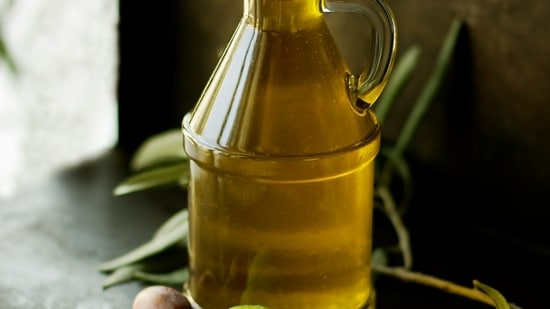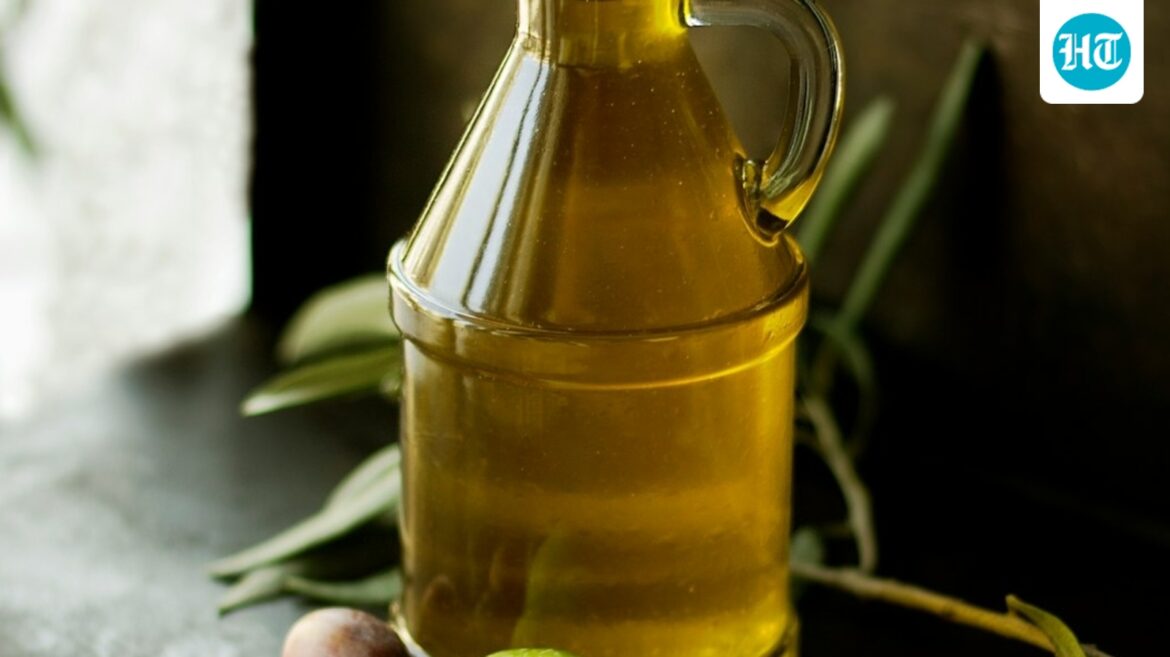Avocado and olive oils have heart-healthy properties because they are high in antioxidants and monounsaturated fats. Rich in flavour, olive oil contains chemicals that may promote intestinal health and decrease blood pressure. On the other hand, with a higher smoke point, avocado oil is better suited for high-heat cooking techniques. Here is all you need to know about avocado and olive oils.
 Olive oil has almost 120 calories per tablespoon.(Representative image/Unsplash) Olive oil: Benefits
Olive oil has almost 120 calories per tablespoon.(Representative image/Unsplash) Olive oil: Benefits
Olive oil is widely valued due to its rich flavour and health-promoting components, including tocopherols, which are similar to vitamin E. It contains more than 60 per cent of MUFAs, particularly oleic acid, which is associated with a lower risk of heart disease and high blood pressure, as per Health.com.
Oleic acid has also been shown to improve gastrointestinal health and reduce ulcers by promoting a diverse gut flora, which is essential for digestion, nutritional absorption, and immune system function, as per Healthline. Olive oil also contains a variety of bioactive ingredients, including plant pigments that are high in antioxidants like carotenoids and chlorophyll, phenolic compounds that combat disease, and phytosterols that decrease blood pressure.
Also read: Is olive oil good for health? Dietician shares health benefits, dangers and tips to use
Olive oil: Potential drawbacks
Olive oil contains almost 120 calories per tablespoon, as per Health.com. Therefore, it is important to limit your intake. The oil has a smoke point of 375 degrees Fahrenheit. It is not advised to use it in some cooking methods, such as deep-frying or searing at very high temperatures, because it might oxidise and possibly produce dangerous chemicals when overheated. Olive oil is mostly composed of monounsaturated lipids, although it lacks omega-3 fatty acids.
Avocado oil: Benefits
Similar to olive oil, avocado oil contains more than 60 per cent MUFA and a significant amount of oleic acid. When used in a variety of cooking methods, including sautéing and stir-frying, the oil’s heart-protective fatty acid profile makes it more stable, flavourful, and nutritious. Additionally, avocado oil is rich in phytosterols, particularly β-sitosterol, which has anti-inflammatory and anti-cancer properties. It also contains carotenoids and chlorophylls, which are antioxidants that help keep the oil stable. Like olive oil, avocado oil can be produced by cold pressing it without the use of artificial solvents.
Also read: Microrobots could open new avenues of medical treatment with their ability to target specific areas
Avocado oil: Potential drawbacks
Like olive oil, avocado oil has a high calorie content (around 120 per tablespoon), so use it carefully. Avocado oil is low in omega-3 fatty acids, which are essential for health, but it is abundant in monounsaturated fats.
Avocado and olive oils are healthy sources of excellent fats and antioxidants. Both oils are good for heart health because they contain oleic acid, a monounsaturated omega-9 fatty acid. Because avocado oil has a greater smoke point than olive oil, it might be more suited for high-heat cooking methods.
Everyone wants to get healthier, of course, and switching to healthy fats is a terrific way to do it. Choose the oil that meets your nutritional needs when you need to make a delicious salad or prepare your pan for some sautéed vegetables.
Note to readers: This article is for informational purposes only and not a substitute for professional medical advice. Always seek the advice of your doctor with any questions about a medical condition.


Dining and Cooking